- Teacher: Tobias Dalhaus
- Teacher: Conor Watson
- Teacher: Florian Wichern
- Teacher: Jose Maria Chapa Gonzalez
- Teacher: Jens Gebauer
- Teacher: Julia Gorris
- Teacher: Maren Weller
- Teacher: Steffi Wiedemann
- Teacher: Christoph Honisch
- Teacher: Henrik Rudolf
- Teacher: Hassan Shafiey
- Teacher: Douglas Beard
- Teacher: Opeyemi Adelesi
- Teacher: Frauke Becker
- Teacher: Salamatu Joana Tannor
- Teacher: Jens Gebauer
- Teacher: Julia Gorris
- Teacher: Eleydiane Gomes-Vale
- Teacher: Md Sofiullah
- Teacher: Nele-Sarah Vahrenhorst
- Teacher: Maren Weller
- Teacher: Tobias Wünscher
- Teacher: Bernd-Theo Hetjens
- Teacher: Maryam Mehri
- Teacher: Simone Pauling
- Teacher: Sven-Patrick Weiß
- Teacher: Eleydiane Gomes-Vale
- Teacher: Tobias Wünscher
- Teacher: Peter Henselder
- Teacher: Christoph Honisch
- Teacher: Henrik Rudolf
- Teacher: Christoph Honisch
- Teacher: Henrik Rudolf
- Teacher: Opeyemi Adelesi
- Teacher: Natalie Laibach
- Teacher: Tobias Wünscher
- Teacher: Opeyemi Adelesi
- Teacher: Frauke Becker
- Teacher: Natalie Laibach
- Teacher: Maren Weller
- Teacher: Tobias Wünscher
- Teacher: Martin Hommels
- Teacher: Florian Kugler
- Teacher: Kilian Visser
- Teacher: Opeyemi Adelesi
- Teacher: Petra Gawalek
- Teacher: Ramona Kirsch
- Teacher: Wael Sabra
- Teacher: Salamatu Joana Tannor
- Teacher: Dietrich Darr
- Teacher: Eleydiane Gomes-Vale
- Teacher: Sylvia Moenickes
- Teacher: Vinh-Ngoc-Nu Nguyen
